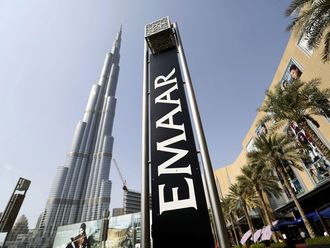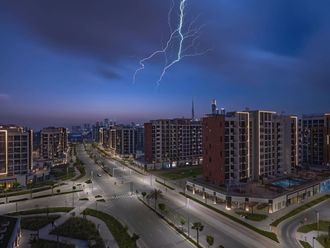In a survey conducted a few months ago regarding maintenance, nearly 50 per cent of respondents across the various communities in Dubai listed the maintenance of air-conditioning (or lack thereof) as the number one issue at their place of living. Surprisingly, that number has remained the same over the years.
Going back to polls conducted in 2010 (and published in various newspapers), the percentage who have remained dissatisfied with their air-conditioning repair has remained broadly the same. This is a stunning indictment of the maintenance industry in Dubai, and illustrates the challenges (as well as the opportunities) of a rapidly growing city.
A fragmented industry serves as no excuse for a lack of service to the customer. In point of fact, it is the lack of service that allows for a fragmentation of the industry, something that has been seen in the facilities management and maintenance space. This has become even more prevalent with the generous use of the “Extended Enterprise Model”, otherwise known as outsourcing, leading to an endless loop of subcontractors.
The customer has been the one that has suffered the most in this process, as survey after survey has demonstrated. Yet, curiously, it is these customers who have been resistant to the adoption of technological improvements that would obviate the need for accepting such substandard services. In today’s environment, smart appliances cannot only regulate the temperature remotely (via the smartphone, with the data being backed into the cloud), but also provide for alerts when the compressor is not working properly (either through a clogged filer and/or in need of a top up of the coolant).
Similarly, cameras that come with facial recognition software allow not only for the alerting of strangers close to the property, but also sync with the security system of the house so as to restrict movement of young children. This is especially true in the case of villa communities where there is a fear of young toddlers wandering out of the front door and potentially into harm’s way.
The challenge historically for adopting these technologies was the upfront cost involved. However, that has rapidly ceased being the focal concern for residents; instead it has been replaced with the fear of obsolescence, as customers face a bewildering array of options.
Increasingly, the gadgetry involved is getting more sophisticated and is enabled with more functionality (for instance, washing machines that have inbuilt calculators in them ...). These choices become overwhelming, and for the vast majority of residents, the default option then becomes one of status quo. This leads them to accept an inferior level of service than what they have been dissatisfied with.
Our advice has always been to keep things simple. Air-conditioning and basic security remain the primary concern for most residents, and any solution that is offered, has to be able to address these concerns in a cost-effective manner. The frequency of human inputs via external assistance has to be minimised, and where needed, inputted well in advance.
With these basic guidelines in place, economics then takes over the equation, enabling most residents to be able to implement such solutions — increasingly, the installation can even be done in a DIY framework — with relative ease and simplicity.
It is clear that the industry is moving towards such cost-effective solutions. Developers are even beginning to offer free cloud storage along with the devices in order to spur sales of their units.
However, the key remains the buy-in of the customer. Rather than pursuing the latest gadgetry, what is needed is a common-sensical approach to the problem, which is durable and which allows for monthly expenses to be controlled more efficiently without an unnecessary disruption of service in peak summer.
These solutions exist, and where surveys, though of a smaller sample size, have been conducted for this subset of customers, satisfaction levels have increased significantly, thereby providing the customer with a sustainable solution.
— The writer is a Manager at Unitas Tech.












